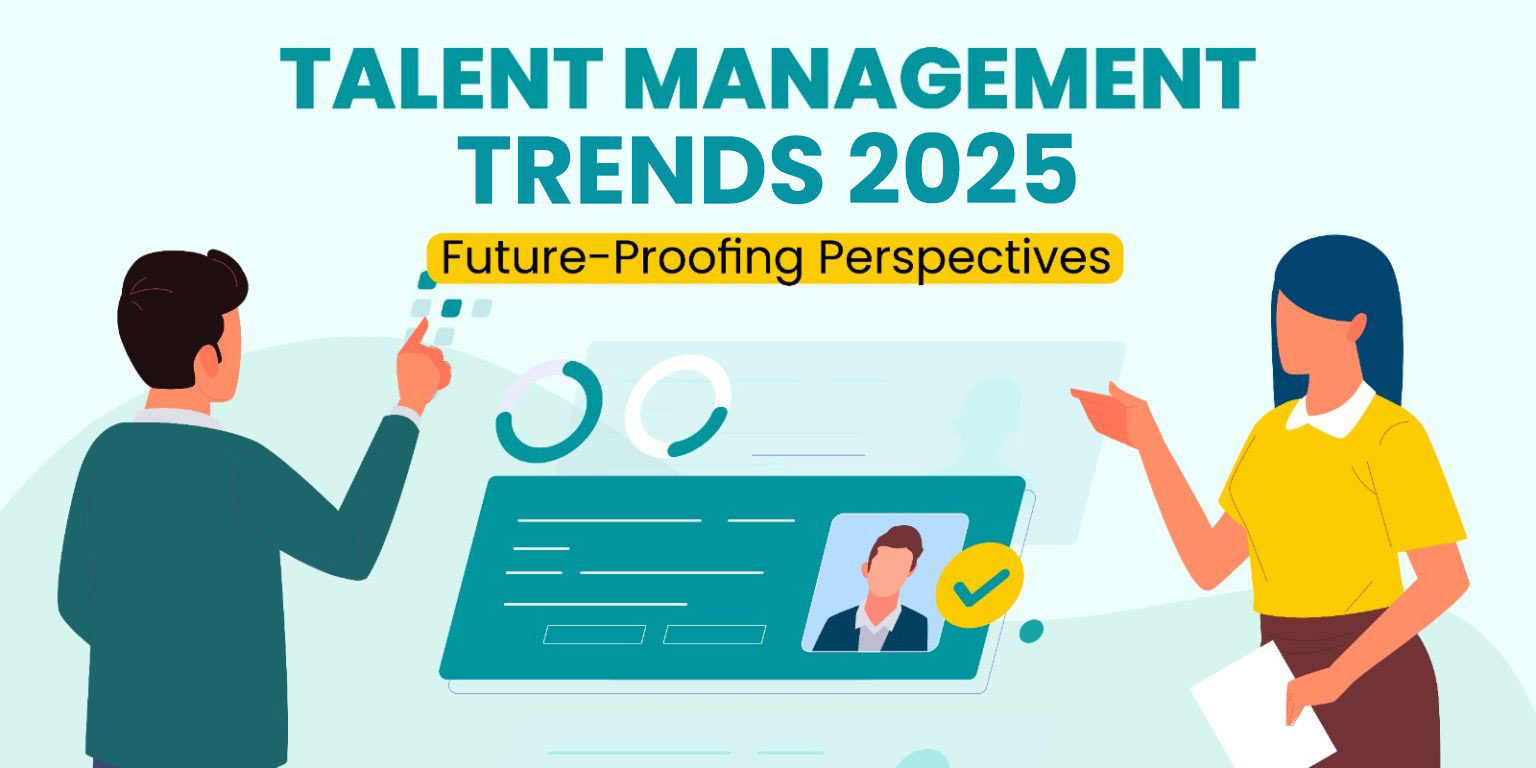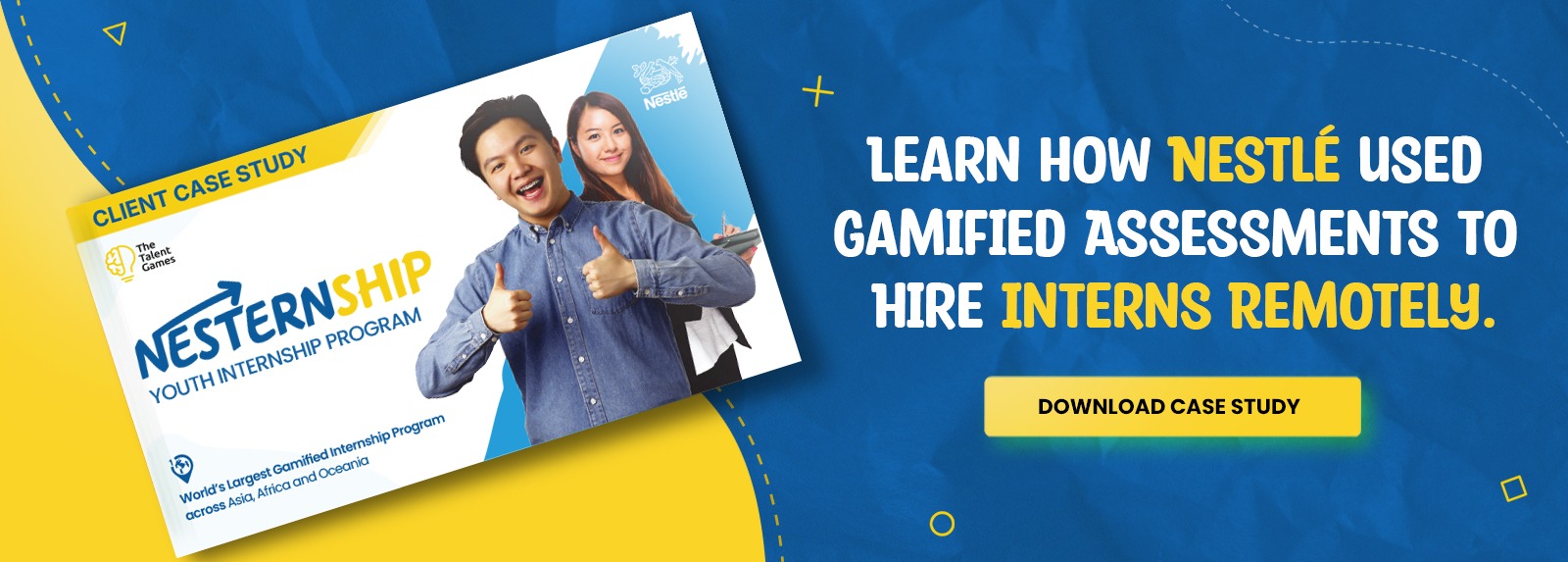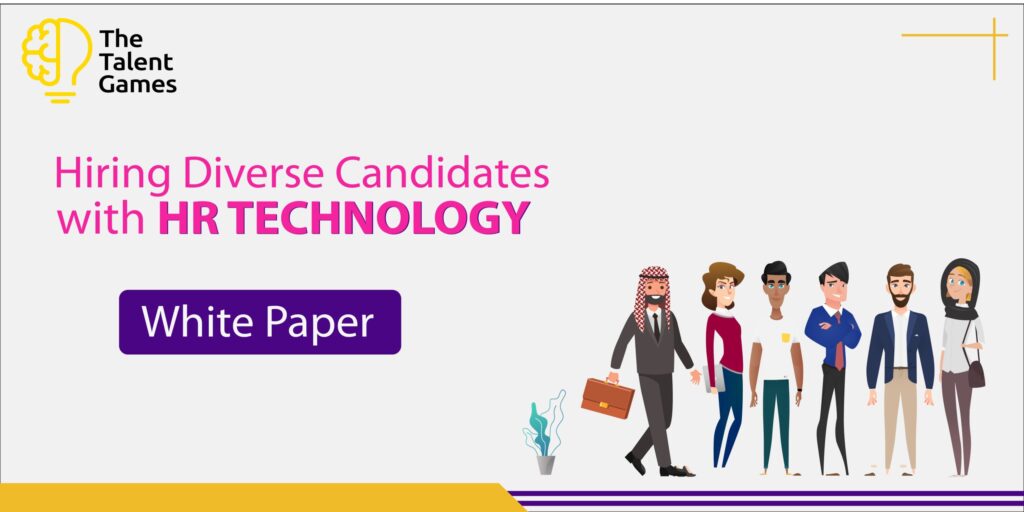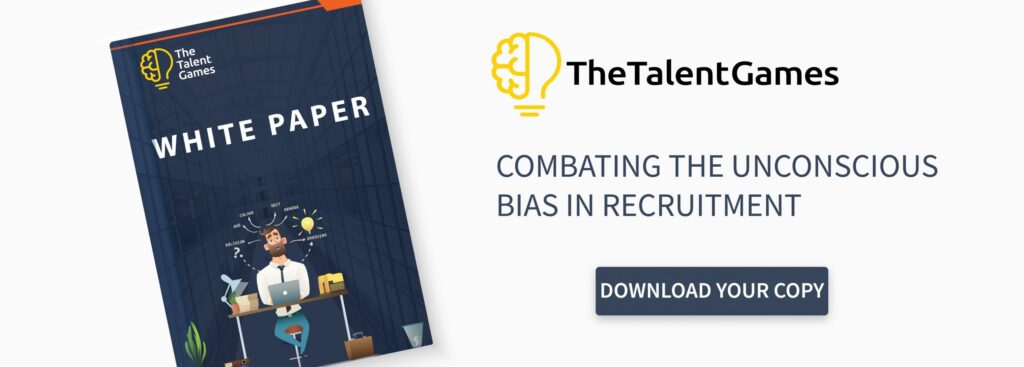Explore the latest talent management trends in 2025 in this blog and how your organization can compete in the evolving organizational landscape.
What’s the biggest talent challenge you’re tackling in 2025? Skills shortages? Leadership gaps? Retaining your top people?
This year, talent management isn’t just a function—it’s a business driver, directly impacting growth and innovation.
From rethinking hybrid work models to prioritizing gamified assessments for talent management and hiring, 2025 demands bold, transformative strategies for success.
With the talent management market projected to grow from USD 14.18 billion in 2024 to USD 25.94 billion by 2030, organizations that invest in people-centric, tech-enabled practices will lead—not follow—in this fast-changing, competitive world of work.
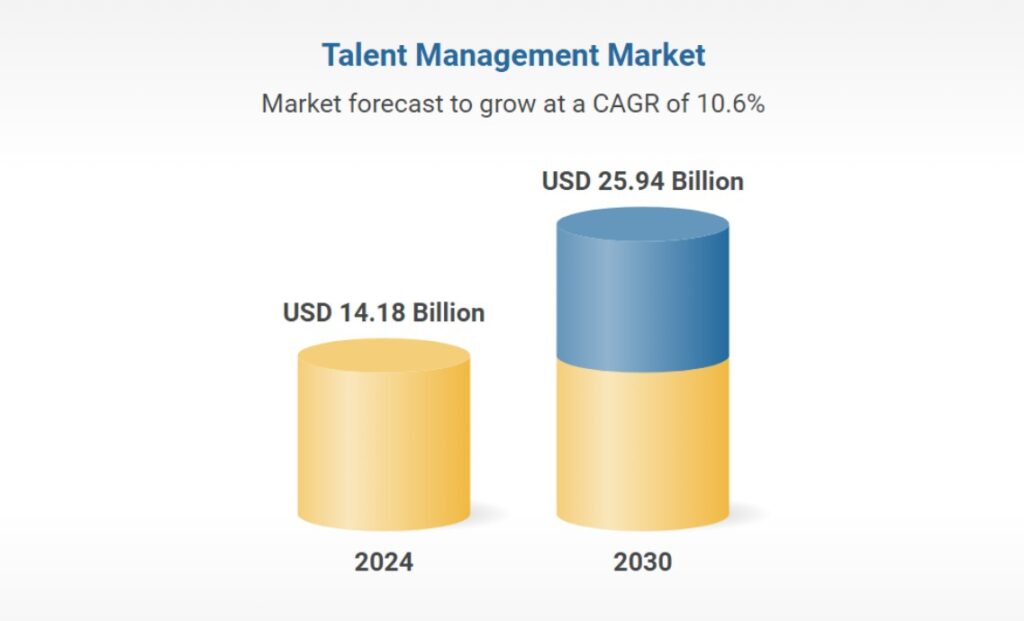
Source: www.researchandmarkets.com/reports/5337300
What is Talent Management?
Talent management is like taking care of a garden, nurturing each plant to thrive. It involves attracting, developing, and retaining skilled individuals to meet organizational goals.
Just as a gardener carefully tends to plants for a bountiful harvest, talent management ensures the right people are in the right roles, continuously growing their skills.
By keeping a check on talent, like watering and weeding a garden, organizations can boost productivity, innovation, and ultimately, their bottom line.
Top 9 Talent Management Trends that Can Shape Your Future
Here are a few of the Talen Management Trends that are making an impact in the market and the top organizations have been embracing them too for future-proofing their organization:
• Personalized Learning Paths
• Gamified Assessments for L&D
• Early Career Talent Hiring
• Remote Work Optimization
• Employee Wellbeing Programs
• DE&I Initiatives
• Employ Centric Focus
• Bias-Free Workplace
• Reskilling & Upskilling
• AI-powered Employee Experience
Trend#1: Personalized Learning Paths
Companies offer a special roadmap to their employees to navigate their future by learning according to their needs. This has become one of the top growing trends because companies want to tackle global talent shortage to secure the top talent.
The idea of personalized paths comes from the realization of the fact that each individual is unique and also the set of principles he is obliged to follow. New research shows that 93% of top-performing companies believe personalized learning boosts employee efficiency and engagement, aiding in achieving professional goals faster.
Trend#2: Gamified Assessment for L&D
Engaging employees in learning and development (L&D) activities has long been a challenge for organizations. Traditional methods of assessment and training often lack interactivity and fail to capture the attention of modern learners. This is where highly engaging gamified assessments come into play.
By integrating game elements such as points, levels, and rewards into training modules and assessments, organizations can make learning more interactive, enjoyable, and effective. Gamified assessments not only increase employee engagement but also provide valuable insights into individual performance and areas for improvement.
The shift towards gamified learning reflects a broader trend of leveraging technology and psychology to create immersive and impactful learning experiences in the workplace.
Trend#3: Early Career Talent Hiring at Scale
A key trend in talent management is the shift towards innovative hiring solutions for early-career talent—a trend that’s expected to continue well into 2025 and beyond. Leading organizations like Nestlé, Coca-Cola, and global football associations are adopting gamified assessments to hire young talent at scale. These interactive tools provide a data-driven approach to identify the right fit, making the hiring process both engaging and efficient.
Young talent brings fresh ideas, adaptability, and energy that are essential for an organization’s success. However, finding the right candidates can be challenging. Gamified assessments simplify this task, allowing companies to evaluate skills and potential in a more dynamic way, ensuring they select the best talent for their future growth.
But when hiring in bulk, cost optimization is a major focus. The average cost per hire is approximately $4,000 according to SHRM, but gamified assessments can reduce this by up to 43%. When scaling recruitment for high volumes, cutting these costs becomes essential, allowing organizations to secure top talent while maximizing their recruitment budgets. Gamified assessments deliver a powerful solution that balances quality with efficiency
Trend#4: Remote Work Optimization
The adoption of remote work has grown ever since the pandemic. This has prompted organizations to rethink their approach to talent management.
While remote work offers numerous benefits such as flexibility and cost savings, it also presents unique challenges in terms of communication, collaboration, and employee well-being.
To optimize remote work arrangements, organizations are investing in tools and technologies that facilitate seamless virtual collaboration, communication, and project management.
They are also implementing policies and initiatives to support the mental health and well-being of remote employees, recognizing the importance of work-life balance in a distributed work environment.
As remote work becomes increasingly prevalent, talent management strategies will need to evolve to effectively support and engage remote employees while maintaining organizational culture and productivity.
Source: ‘Future Work Force Report‘ by Upwork
Trend#5: Employee Well-Being Programs
Employee well-being is emerging as a top priority for organizations looking to attract and retain top talent. Recognizing the link between employee well-being and organizational performance, companies are implementing comprehensive well-being programs that address physical, mental, and emotional health.
These programs may include initiatives such as mindfulness workshops, stress management seminars, flexible work arrangements, and access to mental health resources.
By prioritizing employee well-being, organizations not only enhance employee satisfaction and engagement but also improve productivity, creativity, and retention rates.
In a competitive talent market, well-being programs can serve as a valuable differentiator for employers seeking to attract and retain top talent.
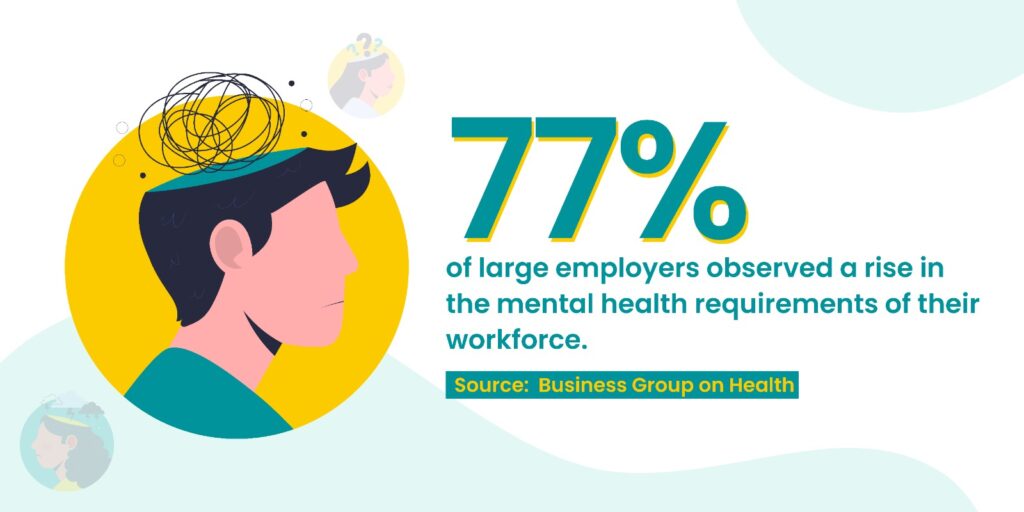
Trend#6: DEI Initiatives
Diversity, equity, and inclusion (DEI) have moved to the forefront of talent management trends, driven by a growing awareness of the benefits of diversity at the workplace.
Organizations are implementing DEI initiatives to create a culture that values and celebrates differences, fosters belongingness, and ensures equal opportunities for all employees.
These initiatives may include unconscious bias training, diverse hiring practices, mentorship programs for underrepresented groups, and employee resource groups.
By promoting diversity and inclusion, organizations not only enhance their employer brand and reputation but also drive innovation, creativity, and performance.
In an increasingly diverse and globalized world, DEI initiatives are essential for building a more equitable and inclusive workplace where all employees can thrive.
Trend#7: Employee-Centric Focus
Gone are the days of one-size-fits-all HR policies and practices. Today’s employees expect personalized experiences and tailored support from their employers. To meet these expectations, organizations are adopting an employee-centric approach to talent management.
This involves understanding the unique needs, preferences, and aspirations of individual employees and designing HR programs and initiatives accordingly.
Whether it’s flexible work arrangements, personalized career development plans, or recognition and rewards programs, employee-centric organizations prioritize the well-being and satisfaction of their workforce.
By putting employees at the center of talent management strategies, organizations can create a positive work environment where employees feel valued, engaged, and motivated to contribute their best.
Trend#8: Bias-Free Workplace
Unconscious bias can have a significant impact on talent management processes, from recruitment and selection to performance evaluation and promotion.
To mitigate bias and promote fairness and equality in the workplace, organizations are implementing measures to identify, address, and eliminate bias at every stage of the employee lifecycle.
This may involve unconscious bias training for hiring managers, implementing standardized selection criteria, anonymizing resumes during the recruitment process, and conducting regular audits of HR practices to identify and address potential biases.
By fostering a bias-free workplace, organizations not only create a more inclusive and equitable environment but also enhance employee satisfaction, engagement, and retention.
Trend#9: Reskilling and Upskilling
The rapid pace of technological change is reshaping the skills landscape, making continuous learning and skill development essential for staying competitive in the workforce.
To address the growing skills gap and future-proof their workforce, organizations are investing in reskilling and upskilling initiatives.

The companies are employing the latest ways like game based assessments to reskill or upskill to create engaging initiatives. These may include training programs, workshops, and online courses designed to equip employees with the skills needed for emerging roles and technologies.
By investing in the development of their workforce, organizations not only enhance employee engagement and loyalty but also ensure they have the talent and capabilities needed to drive innovation and growth.
Bonus Trend#: AI-Powered Employee Experience
Artificial intelligence (AI) is revolutionizing talent management by enabling organizations to personalize the employee experience at scale.
From recruitment and onboarding to performance management and career development, AI-powered tools and platforms leverage data and analytics to deliver personalized recommendations and insights that enhance the employee experience.
For example, AI can analyze employee feedback to identify trends and patterns, predict turnover risk, and recommend personalized learning and development opportunities.
By leveraging AI, organizations can create a more responsive, agile, and employee-centric approach to talent management that drives engagement, productivity, and retention.
Conclusion
In 2025, adapting talent management trends like personalized learning, remote work optimization, and employee well-being programs can take your organization to the next level.
By prioritizing inclusivity, diversity, and growth, businesses can empower their workforce to thrive in an ever-changing environment.
Embracing these trends can help organizations attract, retain, and develop top talent, driving innovation, productivity, and success in the future of work.
